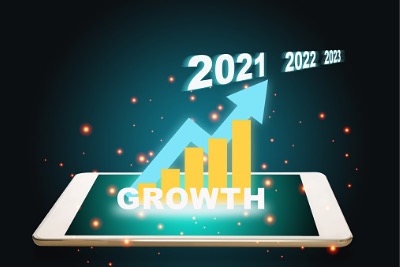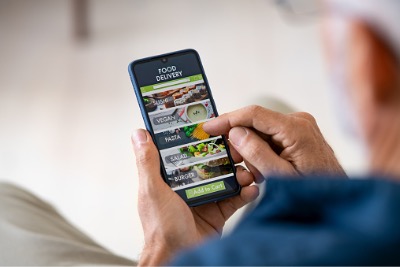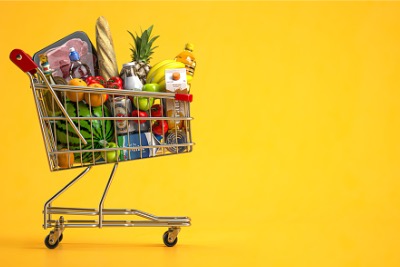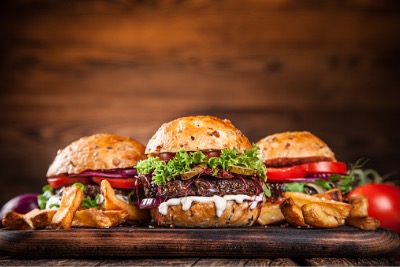
2022 Business Outlook and Market Trends
There’s a whole lot going on in 2021 that will be carried into 2022. At the moment some wealthier countries as well as developing countries with small populations have managed to maintain a fragile hold on the pandemic. There continues to be bitter political conflicts world-wide, the world is facing a climate crisis and the economy, while recovering, still has some gaps to manage. All that being said, the economic outlook is cautiously optimistic for 2022 and well into 2023.
Let’s take a dive into what’s going on in the economy. At the moment we are operating on a different landscape and this landscape will no doubt continue to evolve into one that provides monumental opportunities for those that are aware and prepare.

When the pandemic hit in 2020, consumers with disposable income started pulling back on spending. This hit small businesses in affluent areas the hardest. Travel, events like concerts, conferences and sports, hotels, restaurants, gyms, retail outlets based in malls, and more - all suffered. Those businesses without liquidity, or the ones that couldn’t or wouldn’t embrace e-commerce had to shut down.
The top quarter of the USA’s wealthiest households held on to their cash/credit and were responsible for half of the spending decline during the pandemic. Some businesses did phenomenally well during the pandemic. Like food, consumer goods, e-commerce retailers, healthcare, IT, pharmaceuticals, food supplements, and some media. And they continue to grow.

Outlook for 2022
The IMF predicts that in 2022 economic growth for each region will slightly decline. There will still be growth but slightly less growth than in 2021. In the USA 1.8% growth is good and next year the International Conference Board ICB) is predicting growth of 3.8%. That is really good. According to a recently released International Conference Board Study, supply disruptions have negatively impacted economic growth and these disruptions are directly related to regional pandemic management.
Due to the pandemic, China has shut down manufacturing, factories, plants and ports in various regions and at various points in time. While world demand for consumer products is increasing, the production and distribution of products have, in some cases, come to a screeching halt. We all know what more demand and less supply leads to inflation. For example, fitness equipment brands, automakers, consumer electronics, and kitchen appliance brands may be waiting for parts from China that are produced in plants that were temporarily shut down. Once the parts are produced and delivered, they must be assembled. Every step of the process takes time and translates into months of delays.

Looking more closely at logistics in the USA, imports have been landing at ports and are not moving inland. Ports along the coasts are overloaded with empty containers, and full ships wait in cues for hours, and in some cases, days. There is a shortage of truck drivers, container lifting and handling equipment, and coastal property for expansion. As a result, businesses are buying products early for each season. Thirty years of “just in time” processes are being pushed aside, and companies are starting to carry inventory “just in case”. These logistics issues are expected to be resolved in 2022.
According to the International Conference Board, the labor shortage will continue in 2022. Older workers are retiring and 3 million more people retired during the pandemic – more than expected. Over a million women quit their jobs to homeschool their children, and many are not rushing to get back to the old work routine. And younger workers who are willing and able to work, are finding jobs with much better pay and benefits than in the pre-pandemic years. The increasing prices and wages are expected to stabilize by 2023.

Opportunities for 2022 - Re-shoring – Innovation - Entrepreneurship
Economists believe that in 2022 supply problems will be resolved for most industries. Semiconductors, however, will be in short supply until 2023. That means anything requiring a computer chip will continue to experience delays in production and distribution. Meanwhile, western economies are reshoring and diversifying their supply base. The interdependency of global trade and supply networks were put to the test during the pandemic. And many countries found that they did not have the capabilities to manufacture essential goods and supplies in a crisis. Essential goods include hospital supplies, pharmaceuticals, food and beverage, transportation, bio-medical equipment, and more.
Governments and manufacturers have been under pressure to produce essential goods and services domestically. Manufacturers will re-shore if they can do so competitively. This poses a challenge in highly labor-intensive industries as well as industries that rely on imports of raw materials. In many cases, domestic production will result in higher prices for consumers and less trade. To offset this, governments are providing financial incentives for manufacturing in certain industries.
In the USA, most reshoring in 2021 has been in the transportation, chemical, and IT hardware sectors. However, more reshoring of essential food, beverage, pharmaceutical and consumer goods is expected in 2022. Once re-shored, companies in the chemical, food and beverage, pharmaceutical and consumer goods sectors can market both domestically and abroad.

Some Surprises Ahead
The pandemic has provided and continues to provide many opportunities for budding entrepreneurs, artists and inventors. While many people binged on Netflix, others took to tinkering in their basements, building apps, starting new businesses, investing in cryptocurrencies, writing, drawing or creating cooking and health related channels. During the pandemic, people were provided the opportunity to innovate, create and start new ventures while cooped up at home and unable to socialize. New businesses and innovations will eventually lead to more economic opportunities.
In addition to this, consumer priorities, tastes and preferences have changed during the pandemic. These changes have been noted by businesses that recognize underserved and missing markets and are creating products to satisfy needs in 2022 and beyond.
ISA can help companies Halal certify newly re-shored products as well as newly invented products. Halal certification will enable companies to reach more consumers domestically and internationally.
